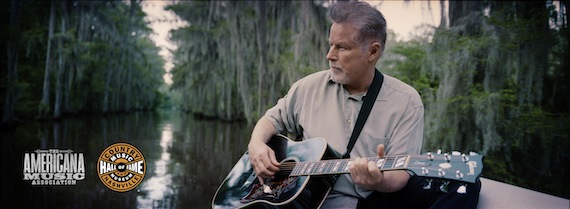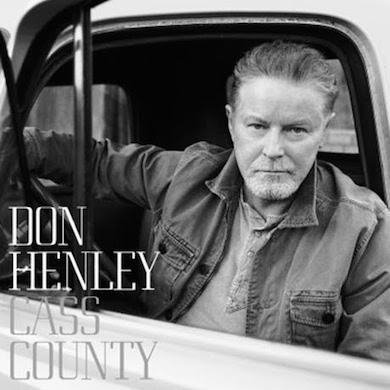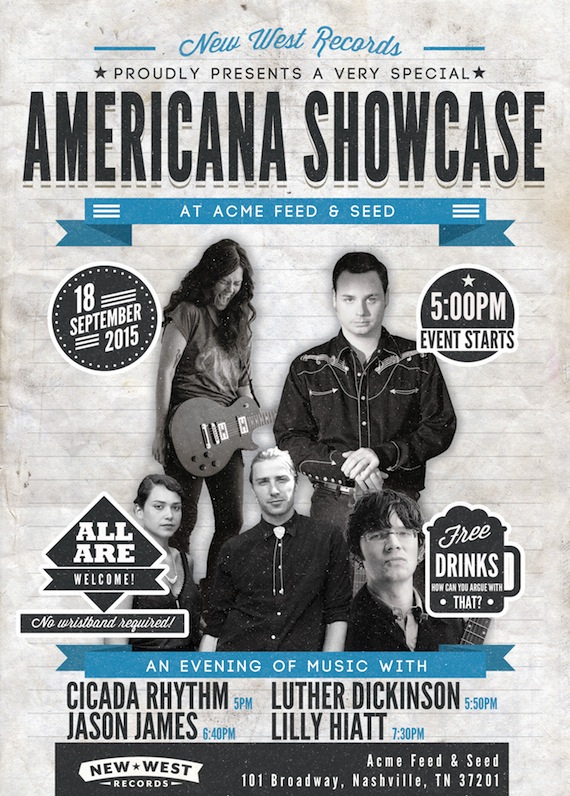
 Don Henley was the keynote guest today (Sept. 16) at the Americana Music Conference, sitting down for a discussion at the Country Music Hall of Fame with music authority Warren Zanes. Here’s what we learned during the hour-long event:
Don Henley was the keynote guest today (Sept. 16) at the Americana Music Conference, sitting down for a discussion at the Country Music Hall of Fame with music authority Warren Zanes. Here’s what we learned during the hour-long event:
Henley grew up in the twilight zone.
Henley said his hometown Linden, Texas, was like “a twilight zone where the south meets the west.” At night he would hide under the covers with the GE transistor radio he bought with money from mowing lawns. He’d tune into 50,000 watt radio stations, picking up bluegrass from the Ozarks, Bob Wills from Texas radio, and stations from New Orleans, which he calls “its own musical planet.” His parents listened to big band music like Glenn Miller, and his grandmother, who moved in with them after her husband died, sang hymns and Stephen Foster songs.
As an adult, Henley realized all the storied musicians who came from the area around Linden, including T Bone Walker, Scott Joplin and Lead Belly, whose grave Henley sometimes visits.
Even rock stars enjoy college.
Henley said his father’s “fondest wish” was for him to go to college, so he went to Stephen F. Austin college in Nacogdoches, Texas where he was greatly impacted by an English professor who said, “You don’t have to be like everybody else.”
Henley eventually transferred to North Texas “where the hippies were.” There he made the dean’s list his final semester but didn’t graduate. He was an English major and the experience solidified his love of words and poetry.
When his father fell ill, he went home to help his mother before moving to California.
If music didn’t work out, “There was no plan B… maybe I would have become a teacher. But the college years I really appreciate.”
Kenny Rogers was an early mentor.
In 1970 Henley moved to California at the urging of Kenny Rogers.
“The music we were gravitating toward was coming from Los Angeles, the country-rock, folk-rock.” They were into the Byrds, Nitty Gritty Dirty Band and Flying Burrito Brothers.
Upon arriving in Los Angeles, Rogers produced an album on Henley’s band Shiloh. (They also recorded in Memphis, but Henley says it was “short lived.”) Rogers had already scored with the hit “Just Dropped In (To See What Condition…).”
“We really weren’t ready to record an album when Kenny recorded us. We were green as songwriters… I learned a lot from watching him work in the studio, about his work ethic and about the business. He was one of the first honest people I met in the business.
“When David Geffen wanted to sign Glenn Frey and I to his label, Kenny helped me get out of the contract that he had negotiated for me. That’s unheard, he helped me get free so that I could move up to something else. Extraordinary what he did for me.”
“He’s generous, honest, kind, thoughtful,” said Henley. Rogers also gave him key advice: be nice to people on the way up because you’re going to meet those same people on the way back down.

Cass County will be released Sept. 25.
Don’t put his music in a box.
“You can trace country music all the way back to our European roots. I think one of the things that is leaving country music these days is… that connection to the roots, and the land and the people who lived on the land.
“The Eagles were always a musical mutt. There were all kinds of elements mixed into our music… ‘One of These Nights’ has Memphis and r&b influences, Glenn Frey brought the Detroit influence.”
As he prepared to release his solo album Cass County, Henley looked at the Billboard chart for the first time in 15 or 20 years. “My jaw dropped,” he said, when he saw how many charts there are now, because the last time he looked there were only five or six.
“That’s what our society does to everything now. We put everything in little boxes, including radio. When I was growing up you could listen to the same FM channel and one minute you would hear Wilson Pickett and the next minute you would hear The Beatles, then Engelbert Humperdinck, and I think that’s good because it gives people the chance to broaden their palate. And nowadays you only listen to whatever it is you think you want to hear. And that’s true with political discourse too, everybody’s preaching to the choir now, which doesn’t give you access to different music, different ideas. It’s all preboxed and prepacked for you. This category thing, I don’t think it’s healthy.”
He loves Dolly Parton.
In fact, he loves her so much, he went to Sevierville, Tenn. to explore her roots and the area’s landscape.
“Her voice contains everything about America. It contains so much history, the history of a people, especially the people of the mountainous regions of the eastern part of the country, it contains sorrow, and suffering and empathy and joy and love and compassion. Every time she opens her mouth—she’s such a tiny person—and the big voice comes out I hear this country and that part of this country. It’s such an authentic voice. It’s grown out of the land. The author E.L. Doctorow said we are neither all spirit nor all clay, we are both. And she is both, she is spirit and she is clay. I have tremendous respect for her and I’m so appreciative that I got to work with her… I’m not afraid to sing with people who can kick my ass, who are better singers than me.”
For more Americana fun this week, check out the New West Records party tomorrow at Acme.


About the Author
Sarah Skates has worked in the music business for more than a decade and is a longtime contributor to MusicRow.View Author Profile


